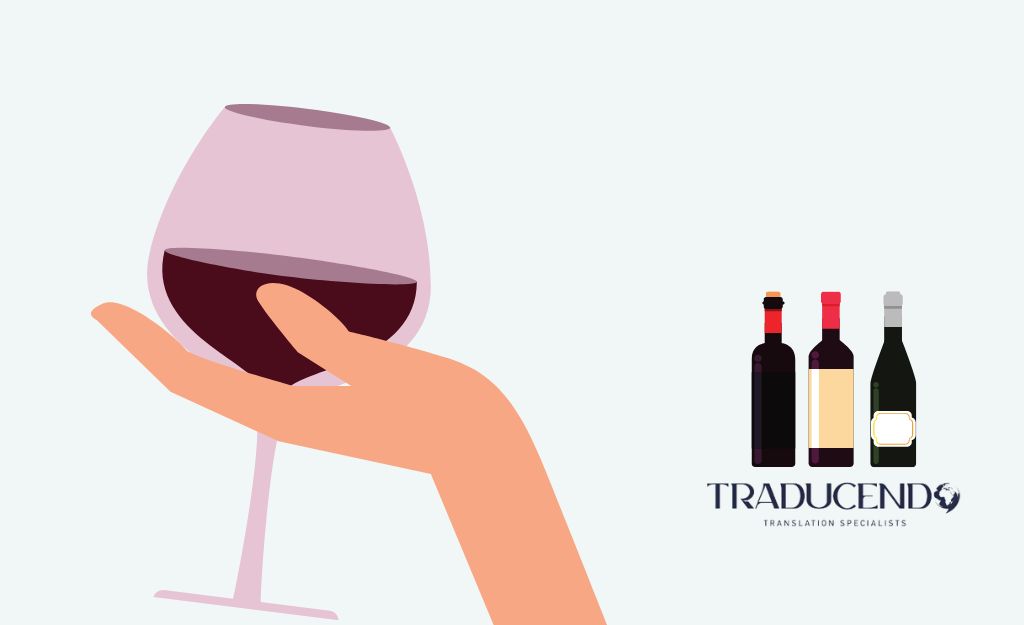This website uses cookies so that we can provide you with the best user experience possible. Cookie information is stored in your browser and performs functions such as recognising you when you return to our website and helping our team to understand which sections of the website you find most interesting and useful.
Wine classification: A complete experience from tasting to labelling

As we’ve mentioned in previous articles, the world of wine is a vast and complex universe in which a variety of flavours, aromas and traditions combine to produce a unique sensory experience. From delicate whites to robust reds, every bottle has a story to tell – one that unfolds with each sip.
In this article, we’ll explore the classification of wines, from definition to labelling, and take a deeper look at special wines, liqueur wines, fortified wines, aromatised wines and vermouth.
Wine: More than a drink – a passion
Simply put, wine is the product of the fermentation of fresh grapes. However, its significance goes beyond the mere transformation of fruit into alcohol. Wine is the culmination of the painstaking work undertaken by winemakers and oenologists, who carefully tend each vine to obtain the best possible result.
From world-renowned red wines to refreshing whites and versatile rosés, the world of wine has an infinite range of options to satisfy all palates.
Wines with high alcohol content: Bottled treasure
In the vinicultural world, there are special categories of wine that are prized for their uniqueness, their exclusivity and their alcohol content – making them ideal for special occasions.
These categories include:
- Liqueur wines
- Fortified wines
- Aromatised wines
Liqueur wines: Sweet temptation in every sip
Liqueur wines are a unique category, prized for their sweetness and their perfect pairing with desserts and cheeses.
Unlike other wines, they are made by adding concentrated or caramelised grape must, over-ripened or raisined grapes, mistelles or caramel.
Neutral alcohol of agricultural origin may also be added to liqueur wines. This stops the fermentation process and allows traces of natural sugar to remain in the wine. This method gives liqueur wines their characteristic sweet-and-sour flavour and high alcohol content, making them the perfect choice for special occasions.
Fortified wines: Elevating the flavour and the experience
Fortified wines are another unique category of wine. They are dry wines fortified exclusively with wine spirit, and have a minimum alcohol content of 18% vol. and a maximum alcohol content of 24% vol. This fortification method produces more full-bodied wines, including world-famous drinks like marsala, port or sherry, each of which uses different wine spirits and ageing methods.
Aromatised wines: A world of fragrance in every glass
Within the fascinating world of wine, aromatised wines occupy a vaunted position, as they offer a broad range of flavours and fragrances that add a touch of sophistication to every occasion.
What sets this unique category of wine apart is the addition of aromatic ingredients like herbs, spices, resins or fruit during the winemaking process. These additions result in an incomparable sensory experience.
Of course, we can’t discuss this category without mentioning the undisputed king of aromatised wines: vermouth.
Vermouth: The perfect aperitif
Vermouth is a special type of aromatised wine that has become a classic staple of every cocktail bar.
Originating in Italy, this wine is known for its bitter, herbal flavour, which makes it an ideal aperitif or the perfect base for classic cocktails like the Martini or the Negroni.
Vermouth comes in a wide range of styles and flavours and is a versatile drink that adds a touch of class to any occasion.
Wine tasting: Uncovering the secrets in every bottle
A wine tasting is a fascinating experience that allows wine lovers to explore the nuances and complexities in every bottle. It stimulates all the senses: beginning with an appreciation of the colour and clarity of the wine, then moving on to detecting the characteristic aromas of each variety.
Then, when the wine is tasted, participants can identify fruity, spicy or woody notes, as the unique story behind each bottle is revealed.
Wine labels: Not just a name – an identity
A wine’s label is an integral part of its appearance, as it provides important information about its origin, grape variety and winemaking process. From the appellation of origin to the vintage and alcohol content, every detail on the label reveals something about the history and quality of the wine inside the bottle. It’s important to pay attention to the label when choosing a wine, as it provides helpful information about its aroma profile and tips for potential pairings.
Recommendation: Translating the experience of wine
For people who want to explore the universe of wine in all its diversity, working with a specialised translation agency can make a world of difference.
Traducendo Ltd is an expert in producing translations for the wine sector and offers a comprehensive and professional service that ensures effective and accurate communication in all languages. From translating product labels and descriptions to legal and technical documents, Traducendo is the perfect partner for companies and professionals in the wine industry who are looking to expand their global reach.
In short, wine classification covers a wide range of styles and categories, each with its own history and personality. From special and fortified wines to aromatised wines and vermouth, every bottle offers a unique experience that deserves to be explored and enjoyed.
With the help of wine tastings and informative labels, wine drinkers can uncover the hidden secrets behind each glass and appreciate the rich and diverse world of wine.
And, for people who want to share this experience with the world, partnering with a specialised translation company like Traducendo ensures that their passion for wine transcends language barriers and reaches all corners of the globe.

